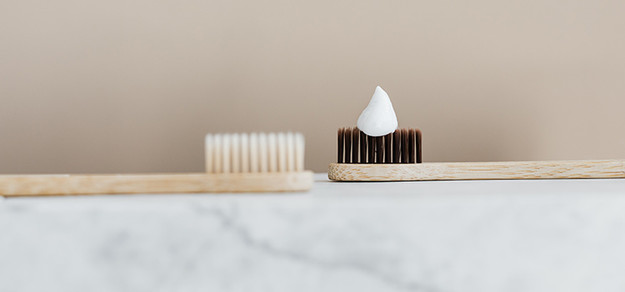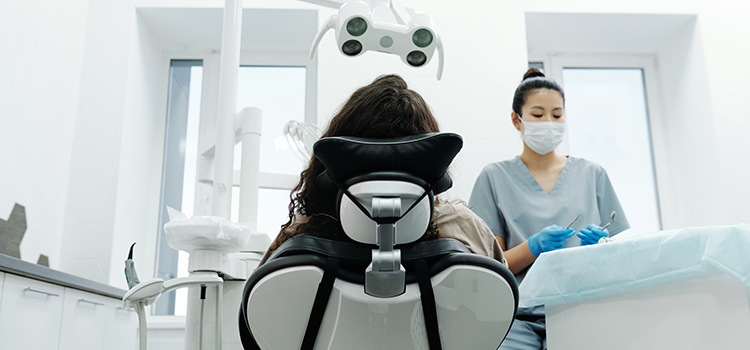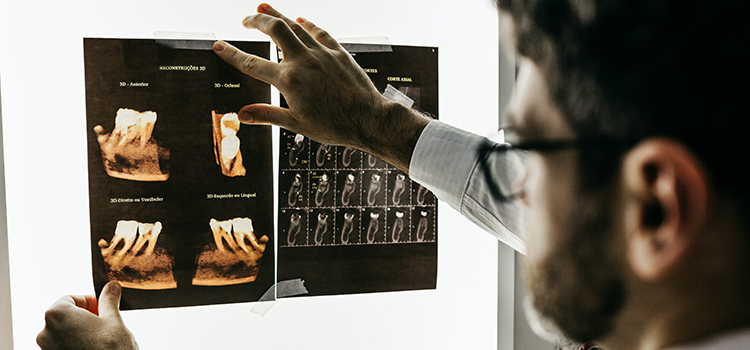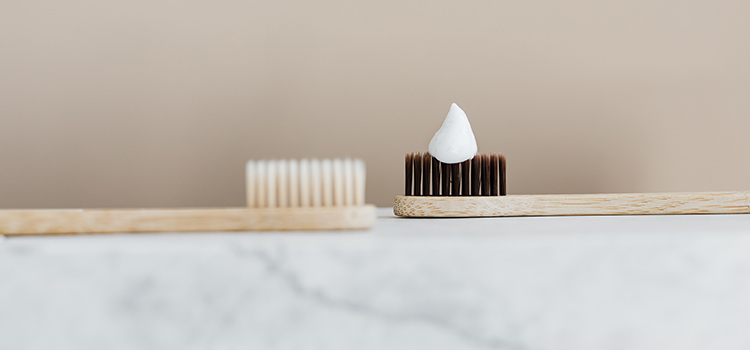How To Reverse Tooth Decay
9th Oct 2021

There's a battle going on right under your nose, but you have the power to turn the tide. Each day, there are accumulated bacteria that create acids which wear on tooth enamel. Enamel is the most important layer for protecting your teeth. If the bacteria damage the enamel, the tooth, or its surface, it will result in tooth decay. When the damage is severe enough, you're left with dental dilemmas like toothaches and cavities. However, if you act fast enough, you can not only stop tooth decay in its tracks but also reverse it. Learning how to reverse tooth decay is empowering. It helps you protect both your oral health and your overall health, so it's certainly something to smile about.

How to Reverse Tooth Decay
There are many bacterias in the mouth; both good and bad. This ecosystem in the mouth is called the oral microbiome. As Web MD explains, the stage is set for tooth decay to occur when the harmful bacteria feed on the sugars in the foods and beverages that you consume. Breaking down these sugars causes the bacteria to release acids that can eat away at the tough layer of enamel that protects the more delicate materials and sensitive nerves tucked inside your teeth.
The bacteria, acids, and sugars mix together in a sticky coating called dental plaque. Plaque build up sticks to your teeth, putting the enamel under attack. If it goes unchecked, it can weaken the tooth through demineralization, eventually damaging the tooth's surface. Fortunately, there are ways that you can stop or reverse tooth decay in the early stages. The National Institute of Dental and Craniofacial Research offers several useful strategies:
- Practice Good Oral Hygiene Habits: Removing plaque from your teeth is an important step in protecting them from tooth decay. One of your best weapons in this battle is a toothbrush. Make it a point to practice good oral hygiene habits in your daily life. Brush your teeth with the right tools and techniques at least twice a day. In addition, floss and use mouthwash at least once each day. Adding these extra steps can help you get hard-to-reach places that you might miss when you brush.
- Use Fluoride: Enamel is made up of a mix of minerals. Fluoride helps remineralize and strengthen tooth enamel. It also reduces the ability of bacteria to form acid. You can use fluoride toothpaste or fluoride mouthwash. It's often added to community tap water supplies. However, bottled water and well water lack this addition, so people drinking water from these sources may need to ask their dentist about fluoride treatments such as a mouth rinse or fluoride tablets.
- Be Mindful About Carbohydrates: Carbohydrates and sugary foods can provide harmful bacteria with plenty of fuel, so it's best to think carefully about how and when you consume them. Opt for healthier options, limit your portions, and try to time your consumption so that you can brush soon afterward. If you can't brush, try to rinse your mouth or drink water after eating. Incorporating more plant-based foods into your diet can increase the amounts of healthy bacteria in your mouth, preventing disease and cavities.
- Visit Your Dentist For Regular Checkups: Seeing your dentist for regular checkups offers an opportunity to receive a professional cleaning that can remove any lingering dental plaque or tartar that has escaped your own tooth brushing efforts. It's also a chance to have your dentist check for any signs of tooth decay. They'll conduct visual checks, take X-rays, and let you know if any action needs to be taken. They can also offer advice about your oral hygiene regimen and schedule your next appointment so that you stay on track.

Paying attention to your diet can benefit both your overall health and your oral health. Eating nutritious meals and opting for healthy, unsweetened beverages doesn't just benefit your waistline. It also provides your body with building blocks it can use to stay fit and healthy. Colgate points out natural probiotics are a great example of how healthy eating habits can benefit your body and oral health. Probiotics are beneficial bacteria found in foods like yogurt, kefir, sauerkraut, and kombucha. When they're present, it's more difficult for the bad bacteria to cause oral health problems. Therefore, consuming foods that support these good bacteria can help keep bad bacteria in check in both your gut and your mouth.
While you're at it, aim to eat a mix of foods that will provide plenty of calcium, vitamin D, and magnesium. Consuming an ample amount of these vital nutrients can help remineralize your teeth. If you fear that your diet is lacking, consider taking a multivitamin or supplements.

What Happens If Tooth Decay Goes Untreated?
If tooth decay is allowed to progress, it can lead to pain, cavities, and tooth loss. HealthLine offers an explanation of the likely course of events:
- Demineralization: During the initial stage of tooth decay, the enamel is exposed to acids and becomes weak.
- Enamel Decay: The enamel continues to falter. If it fails, holes called cavities form.
- Dentin Decay: The dentin is the soft inner layer of the tooth. When the cavity reaches it, you'll begin to experience pain and tooth sensitivity.
- Pulp Decay: The pulp is the heart of the tooth and home to its nerves and blood vessels. When the decay reaches this area, the inflammation is severe. Nerves are extremely sensitive and pain will most likely increase.
- Abscesses: When bacteria slip beneath the pulp to form a pocket of pus at the gums, it's called an abscess.
If a cavity develops, your dentist may be able to fix the tooth with a dental filling or dental sealant. However, if the tooth has suffered too much damage, a more significant repair like an inlay or crown may be necessary. When infection is present, a root canal may be needed to clear the infection. If the tooth is beyond saving, it may need to be removed. In that case, dental implants will be recommended to fill any gaps in your smile.
Related Articles:
Tooth decay can develop into serious problems which may require invasive dental work. Fortunately, with proper care, tooth decay can be stopped, and you can even reverse tooth decay. Making consistent smart choices about your oral hygiene routine will give you an edge. Choosing a healthy diet and being mindful of how you consume carbohydrates will help you stay on track. Finally, making it a point to keep your regular dental checkups will help you ensure that nothing falls through the cracks. If you’re experiencing tooth pain, visit your dentist as soon as possible because they will be able to help identify the problem and recommend solutions to improve your dental health.
References:
- Colgate Writing Staff. (n.d.). Are Probiotics Good for Oral Health? Colgate. https://www.colgate.com/en-us/oral-health/plaque-and-tartar/probiotics-for-oral-health
- Lockett, E. (2020). Can You Reverse a Cavity? . Healthline. https://www.healthline.com/health/can-you-reverse-a-cavity#takeaway
- NIH Writing Staff. (2018). The tooth decay process: How to reverse it and avoid a cavity. National Institute of Dental and Craniofacial Research. https://www.nidcr.nih.gov/health-info/tooth-decay/more-info/tooth-decay-process
- WebMD Writing Staff. (2021). What to Know About Reversing Tooth Decay. WebMD. https://www.webmd.com/oral-health/what-to-know-about-reversing-tooth-decay

- Most Popular
- Hard Outside, Soft Inside
- 2MM Thick
- Moderate / Heavy

- Most Durable
- Hard Materials
- 1.5MM Thick
- Heavy / Severe

- For Day Time Use
- Thin, Barely Visible
- 1MM Thick
- Light / Moderate

- For Clenching
- Flexible & Soft
- 1.5MM Thick
- Light / Moderate

